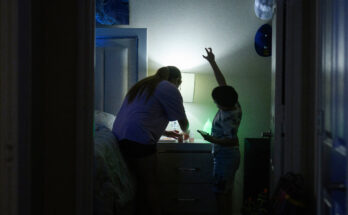Families with holiday rituals are more likely to gather. So here’s to “Ribsgiving,” stinky gifts and fried oysters for Christmas breakfast.. When I was growing up, we had a family tradition that I didn’t know was weird. For regular meals, we folded our paper napkins in half in a rectangular shape. But for holiday dinners, we folded them diagonally — which, for reasons that have never been made clear, my parents viewed as more formal.. I think about this quirky little tradition every holiday. Our Thanksgiving table has changed a bit over the years, but the napkins were still neat triangles this year, as always. It warmed my heart, for some reason, and it always comforts me to hear about other people’s holiday rituals, too.. One friend of mine, a New Yorker, celebrates what she calls Greenland New Year’s Eve. “I can never make it to midnight,” she told me. “So I ring in the New Year at 9 p.m. Eastern time, when it’s midnight in Greenland. Then I go to bed.”. Another friend always attends Yo La Tengo’s annual “8 Nights of Hanukkah” concert residency in New York City. (As he put it, “Gifts for the kids; a show for me.”). Traditions don’t need the weight of history to be meaningful, said Michael Norton, a professor of business administration at Harvard and the author of “The Ritual Effect.”. Dr. Norton, who has researched family holidays, told me that families who have rituals “report being more likely to brave the hectic travel and traffic to actually gather.” Those who don’t have such rituals, he found, are less likely to come together.. We are having trouble retrieving the article content.. Please enable JavaScript in your browser settings.. Thank you for your patience while we verify access. If you are in Reader mode please exit and log into your Times account, or subscribe for all of The Times.. Thank you for your patience while we verify access.. Already a subscriber? Log in.. Want all of The Times? Subscribe.




